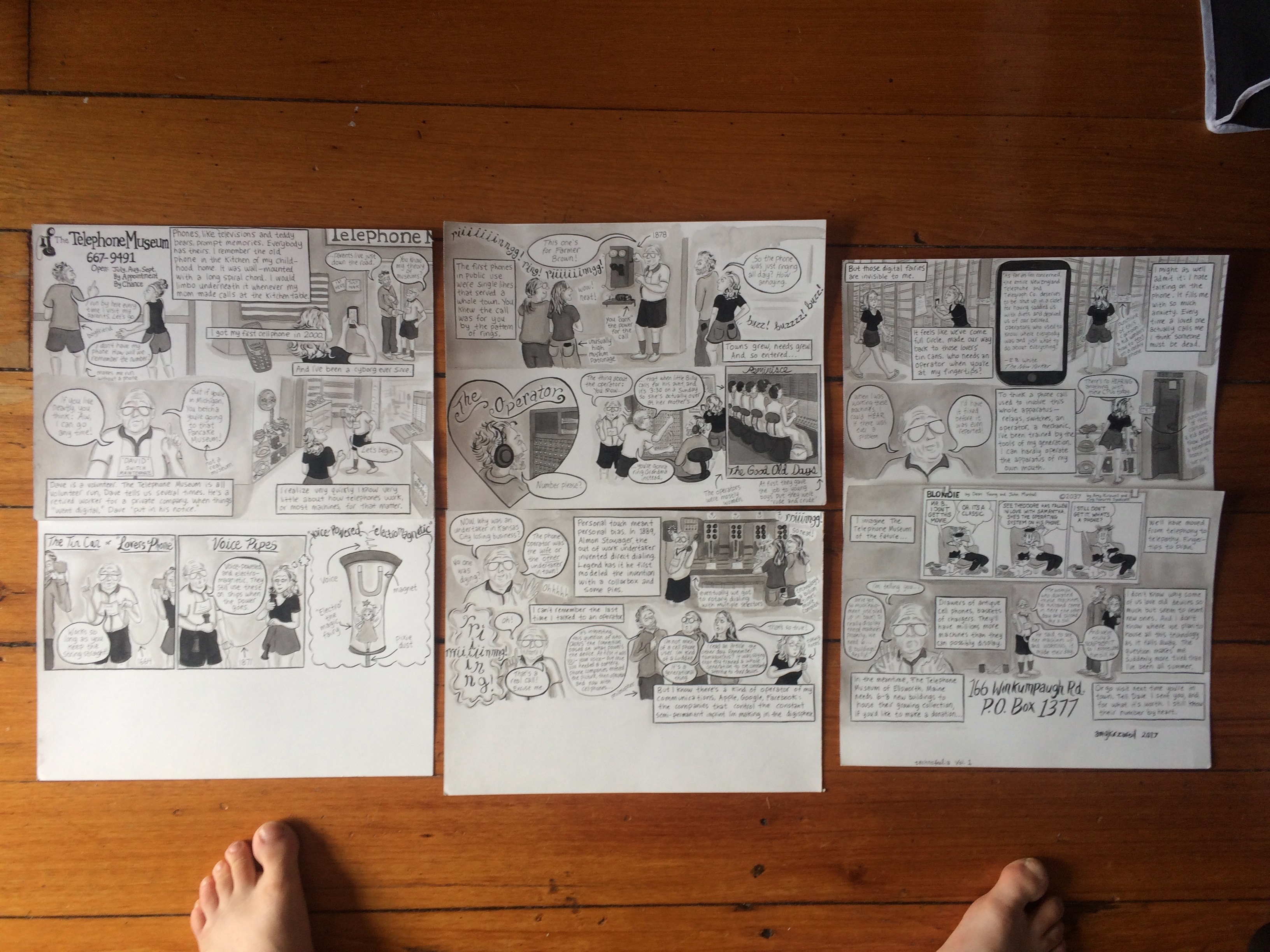
Amy Kurzweil has a classic—and enviable—cartoonist mind, equipped for creating satisfying and often funny narratives to single-panel gags as well as book-length graphic stories. Here, she talks about “The Telephone Museum,” the first installment in her illustrated “Technofeelia” series, in which she visits a treasury of antiquated communication devices.
—Kristen Radtke
THE BELIEVER: How did this comic start?
AMY KURZWEIL: I had the idea for “Technofeelia” because I’ve always been curious about human interaction with technology. What do new ways of moving, communicating, remembering, loving, and learning mean to us emotionally? What are the hypocrisies in the feelings we profess to have about new machines? And how does technology change our experiences privately or communally?
The first two installments of this series both feature trips to museums. In Vol. 1, “The Telephone Museum,” I visit a delightful Telephone Museum run out of a barn in Elsworth, ME, near where my boyfriend’s parents live, lovingly kept open by a retired telephone worker and a small rotation of volunteers. When I ran past the sign, which boasts that museum visits can be scheduled by appointment (the phone number is listed without an area code) or “by chance” I was moved. I’m compelled by tech nostalgia. The word “technology” summons visions of new revolutionary inventions in the present or the future—I think some people are inherently threatened by the word, how it gestures at irreparable change—but when I encounter old machines I’m struck with a dizzying sense of perspective. I like to imagine the world before the machines I take for granted were ubiquitous, and I want to challenge the impulse to romanticize this vision of a “simpler” time.
In Vol. 2, “Crossing Over,” I visit the Museum of Jewish Heritage in Manhattan to see a new exhibit of interactive holograms of Holocaust survivors; the avatars “hear” your questions and respond with their stories. I was especially interested in this exhibit because my first book, Flying Couch, tells my maternal grandmother’s survivor story. I’m intimately familiar with her history, and with stories like hers, and it’s fascinating to consider a world in which she might be “around” to tell her story for herself. I wonder if this technology will become, like the telephone, ubiquitous, and if this is, in some sense, one of many ways technology will continue to revise the meaning of death.
You have reached your article limit
Sign up for a digital subscription and continue reading all new issues, plus our entire archives, for just $1.50/month.
Already a subscriber? Sign in





